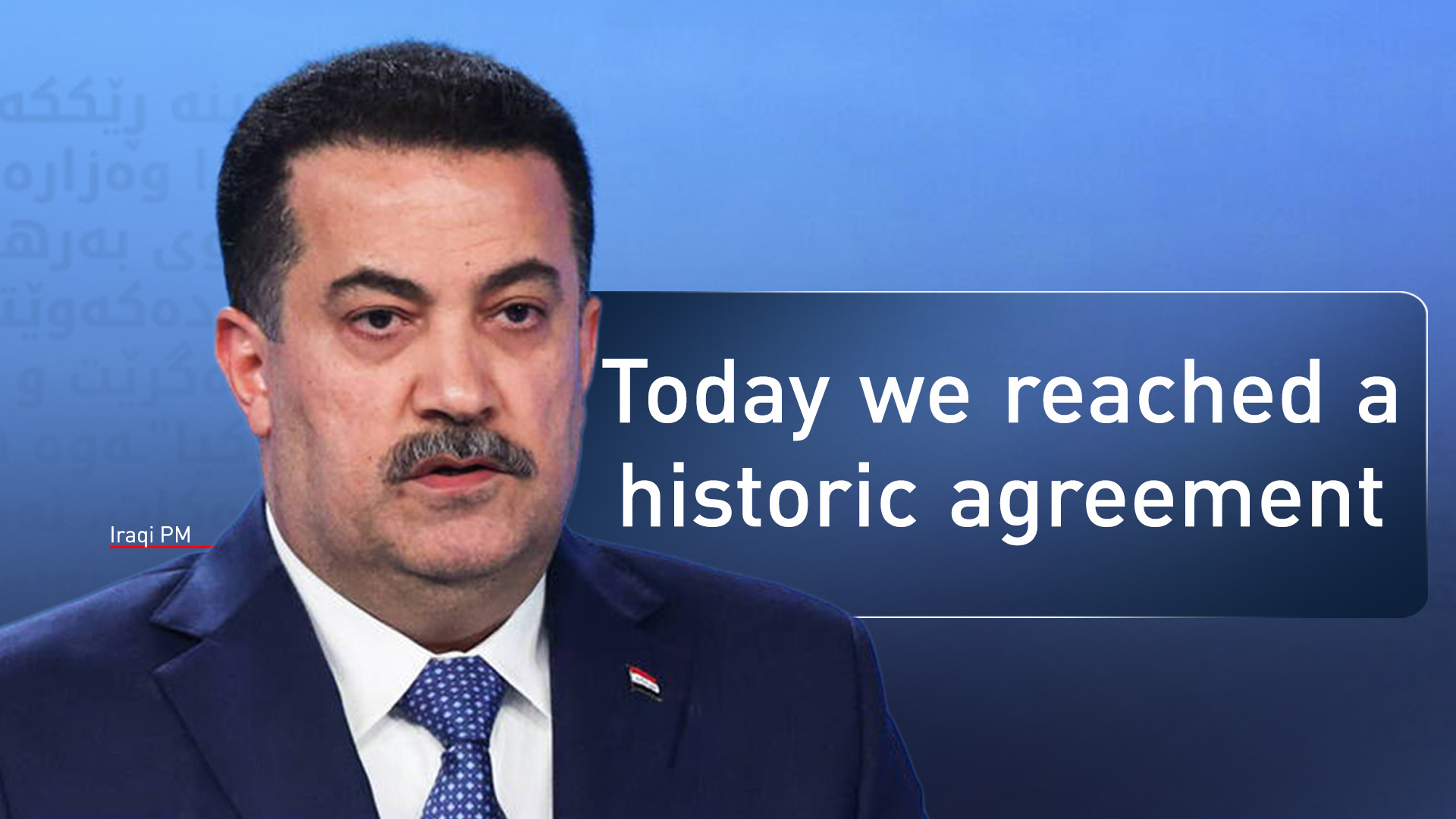Iraqi PM Announces ‘Historic’ Oil Export Agreement with Kurdistan Region
“Today we reached a historic agreement under which the Federal Ministry of Oil will receive crude oil produced from the fields in the Kurdistan Region of Iraq and export it through the Iraq–Türkiye pipeline,” al-Sudani wrote on social media platform X.

ERBIL (Kurdistan24) – Iraqi Prime Minister Mohammed Shia’ al-Sudani on Thursday announced a breakthrough agreement that will allow crude oil exports from the Kurdistan Region to resume through the Iraq–Turkey pipeline.
“Today we reached a historic agreement under which the Federal Ministry of Oil will receive crude oil produced from the fields in the Kurdistan Region of Iraq and export it through the Iraq–Türkiye pipeline,” al-Sudani wrote on social media platform X. “This ensures fair distribution of wealth, diversification of export outlets, and encouragement of investment. An achievement 18 years in the making.”
The deal was reached after months of negotiations between the federal government in Baghdad, the Kurdistan Regional Government (KRG), and international oil companies (IOCs). Eight IOCs, which together with the KRG’s share account for more than 90 percent of the Kurdistan Region’s oil production, confirmed on Wednesday that interim agreements had been achieved with both Baghdad and Erbil.
KRG Cabinet Focuses on Oil and Finances
On the same day, Kurdistan Region Prime Minister Masrour Barzani chaired a meeting of the KRG Council of Ministers to discuss the resumption of oil exports and financial arrangements with the federal government. Officials in Erbil hailed the progress as a step toward resolving long-standing disputes over resource management and revenue sharing.
Read More: KRG Council of Ministers Discusses Tripartite Oil Agreement and Salary Payments
A Breakthrough After Lengthy Suspension
Oil exports from the Kurdistan Region were halted in March 2023 following a ruling by the International Chamber of Commerce in Paris, which determined that shipments through Turkey’s Ceyhan port required Baghdad’s consent. The halt cut off a major revenue stream for both Erbil and Baghdad, straining their budgets and complicating Iraq’s role in global energy markets.
Since then, talks have been marked by political tensions, differing legal interpretations of Iraq’s federal oil law, and disputes over income distribution. Balancing the interests of Erbil, Baghdad, and the international companies invested in the Region’s oil sector required months of delicate diplomacy.
Strategic and Economic Impact
The agreement is expected to stabilize Iraq’s domestic energy sector while boosting its standing as a reliable oil supplier abroad. By reopening the Kurdistan Region’s export routes, the deal also promises to attract renewed foreign investment and provide fiscal relief to both the federal and regional governments.
Officials and industry observers describe the breakthrough as a landmark in Iraq’s post-2003 energy policy, potentially setting the stage for deeper economic cooperation between Baghdad and Erbil.
Today we reached a historic agreement under which the Federal Ministry of Oil will receive crude oil produced from the fields in the Kurdistan Region of Iraq and export it through the Iraq–Türkiye pipeline. This ensures fair distribution of wealth, diversification of export…
— محمد شياع السوداني (@mohamedshia) September 25, 2025